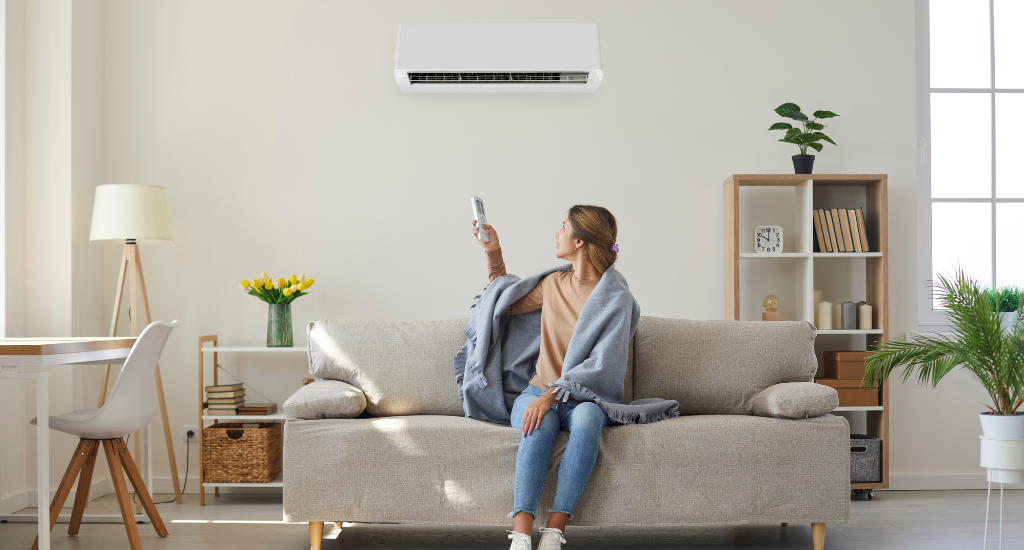Indoor comfort is something we often take for granted, thanks to the marvels of modern technology, particularly Heating, Ventilation, and Air Conditioning (HVAC) systems. These systems are responsible for maintaining comfortable indoor temperatures, proper ventilation, and humidity levels. While HVAC units greatly contribute to our well-being, they can also have a profound impact on our health.
In this article, we will explore 7 ways in which HVAC health effects can influence our overall well-being and what we can do to mitigate these effects.
1. Indoor Air Quality and Allergens
One of the most crucial aspects of indoor health is air quality. HVAC systems play a pivotal role in regulating indoor air quality by circulating and filtering the air within our living spaces. However, if not adequately maintained, these systems can become breeding grounds for allergens. Common culprits such as dust, pollen, and pet dander can easily be circulated throughout our homes, leading to various health issues.
Research has shown that poor indoor air quality can exacerbate respiratory conditions like allergies and asthma. Individuals with compromised respiratory systems are particularly susceptible to HVAC health effects. Regular HVAC maintenance, including cleaning and replacing filters, can significantly reduce the presence of allergens in the air and improve indoor air quality.
2. Mold Growth and Dampness
Dampness and mold growth are common issues associated with poorly maintained HVAC systems. Moisture accumulation within these systems can create an environment conducive to mold growth. Exposure to mold spores can lead to respiratory irritation, allergic reactions, and even more severe health concerns.
To prevent mold-related HVAC health effects, it’s essential to ensure proper system maintenance and manage humidity levels. Regular inspections and addressing any leaks promptly can help prevent the buildup of moisture, reducing the risk of mold growth.
3. Ventilation and Stale Air
Proper ventilation is critical for maintaining a healthy indoor environment. HVAC systems not only regulate temperature but also play a role in ventilating indoor spaces by exchanging indoor and outdoor air. Inadequate ventilation can result in a buildup of indoor pollutants and carbon dioxide, leading to discomfort and health issues.
HVAC units with efficient ventilation mechanisms can help mitigate these HVAC health effects. Regularly opening windows, using exhaust fans, and ensuring that the HVAC system is functioning optimally can improve indoor air circulation and quality.
4. Temperature Extremes and Discomfort
Temperature extremes caused by HVAC malfunctions can have direct impacts on our health. Exposure to excessively high or low temperatures can lead to discomfort and, in severe cases, heat exhaustion or hypothermia. Vulnerable populations, such as the elderly and young children, are particularly susceptible to these HVAC health effects.
Regular maintenance and prompt repairs are essential to prevent temperature-related issues. Monitoring thermostat settings and ensuring that HVAC systems are functioning correctly can help maintain consistent and comfortable indoor temperatures.
5. Noise Pollution and Sleep Disturbances
While HVAC systems are essential for maintaining indoor comfort, they can also contribute to noise pollution. The noise generated by HVAC units can disrupt sleep patterns, leading to sleep disturbances and increased stress levels. Chronic sleep disruptions have been linked to various health problems, including cardiovascular issues.
To reduce HVAC-related noise, consider installing sound-dampening materials and positioning the HVAC unit away from bedrooms. Regular maintenance can also help minimize noise by addressing any components that may be causing excessive vibrations.
6. Chemical Emissions from HVAC Equipment
Volatile Organic Compounds (VOCs) are chemical compounds emitted by various household products, including HVAC equipment. Prolonged exposure to high levels of VOCs can result in adverse health effects, ranging from eye, nose, and throat irritation to more serious respiratory issues.
Opting for HVAC systems with low VOC emissions and ensuring proper ventilation can help mitigate these HVAC health effects. Additionally, choosing environmentally friendly building materials and limiting the use of VOC-emitting products can contribute to a healthier indoor environment.
7. Inadequate Filtration and Respiratory Issues
HVAC filters play a crucial role in trapping airborne particles and contaminants, contributing to improved indoor air quality. However, using low-quality filters or failing to replace them regularly can lead to inadequate filtration. This can result in increased concentrations of pollutants in the air, exacerbating respiratory conditions and causing discomfort.
To address these HVAC health effects, it’s important to select high-quality filters and adhere to a regular maintenance schedule. Changing filters according to manufacturer recommendations and checking them for cleanliness can ensure that the HVAC system functions optimally in terms of air filtration.
Breathe Easy with a Well-Maintained HVAC System

In conclusion, our HVAC units are more than just temperature regulators; they significantly impact our indoor environment and our health. From indoor air quality and allergen circulation to mold growth and inadequate ventilation, HVAC health effects are varied and substantial. However, with proper maintenance, regular inspections, and an awareness of potential health risks, we can create a healthier indoor environment.
It’s crucial to prioritize HVAC maintenance and take proactive steps to mitigate these potential health impacts. By doing so, we can enjoy the comfort of our indoor spaces without compromising our well-being. So, the next time you adjust your thermostat or consider upgrading your HVAC system, remember that your health is an essential factor in the equation.



